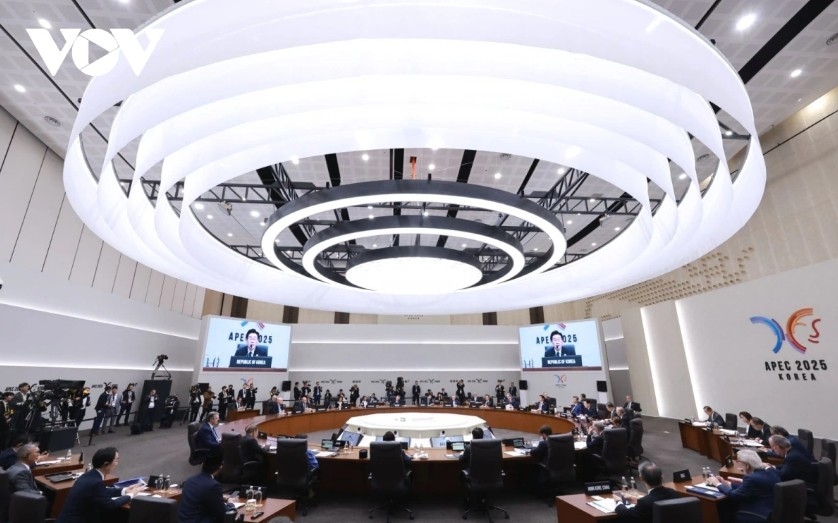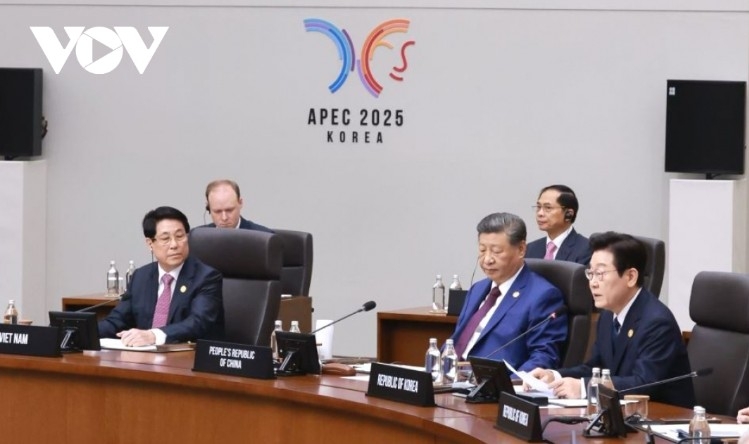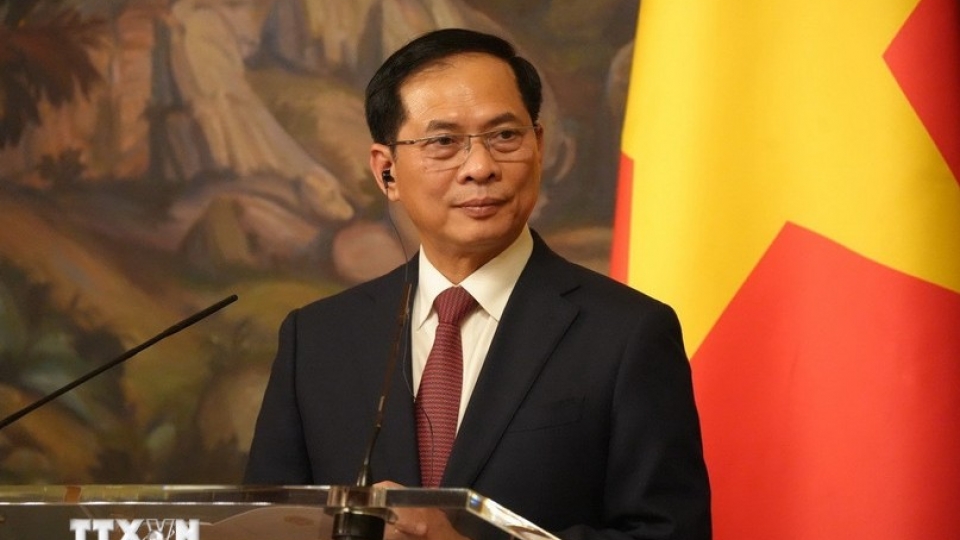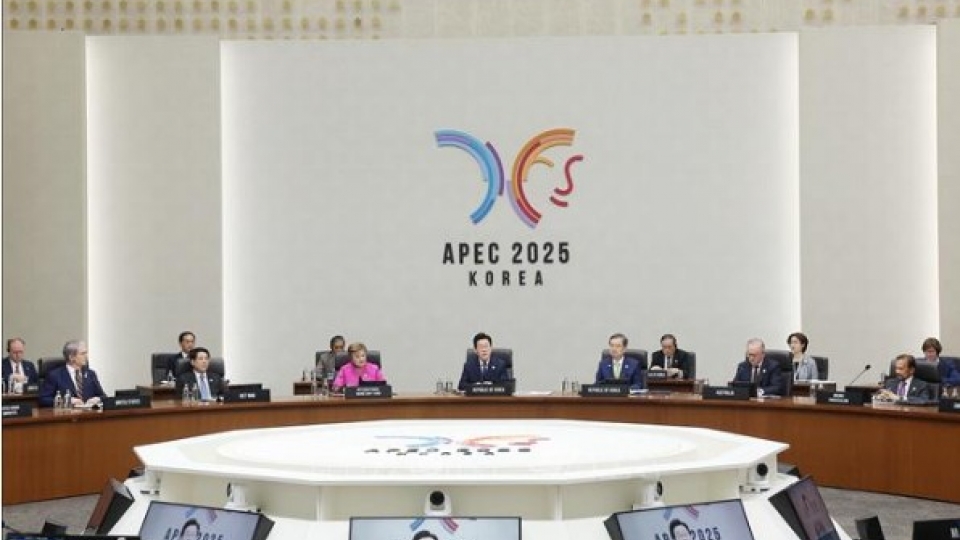Vietnam proposes five cooperation orientations at APEC Economic Leaders’ Meeting
VOV.VN - President Luong Cuong put forward five major cooperation orientations for APEC at the second session of the 32nd APEC Economic Leaders’ Meeting held on the morning of November 1 (local time) in Gyeongju, the Republic of Korea, with the participation of leaders and heads of delegations from the forum’s 21 member economies.

Under the theme “Preparing a Future-Ready Asia-Pacific”, the meeting reaffirmed APEC economies’ determination to build a resilient region that can withstand challenges, achieve sustainable growth, and deliver benefits to all people. Amid global and regional uncertainties marked by intertwined opportunities and challenges, the leaders underscored APEC’s central role as the region’s leading economic cooperation forum and a testing ground for innovative, breakthrough ideas.
Affirming the indispensable role of trade and investment in regional development and prosperity, APEC leaders pledged to continue promoting regional economic integration, enhancing connectivity across infrastructure, institutions, and people-to-people exchanges, and supporting the growth of small and medium-sized enterprises. They agreed to advance trade facilitation, strengthen transparency measures, boost paperless trade, and back efforts to ensure resilient supply chains both regionally and globally.
To prepare the region for digital transformation, they agreed that scientific and technological advances and the use of artificial intelligence (AI) must ultimately serve humanity. They encouraged member economies to voluntarily share information on digital and IT policies to accelerate regional economic cooperation, build a safe, trustworthy, and accessible AI ecosystem, and invest in energy-efficient, environmentally friendly infrastructure.
The meeting reaffirmed the commitment to implementing the APEC Internet and Digital Economy Roadmap; enhancing members’ capacity to participate in digital transformation through cooperation, training, and capacity building; and stepping up cooperation to bridge the digital divide, enabling all people to access and benefit from digitalization.
To jointly tackle challenges and share growth benefits, APEC leaders committed to augmenting cooperation in dealing with key issues such as energy and food security, natural disasters, and extreme climate events. In light of demographic changes across the region, they called for collective, comprehensive, and intergenerational approaches to employment, education, healthcare, and public finance to overcome challenges and seize opportunities for development and growth in the Asia-Pacific.
Addressing the meet, President Luong Cuong observed that the world is undergoing rapid transformation driven by technological breakthroughs and profound cultural, social, and environmental shifts, requiring APEC economies to proactively adapt and bolster cooperation to seize opportunities and overcome challenges.

To adapt to the fast-evolving AI landscape and shape a more inclusive, sustainable, and human-centered growth model, the Vietnamese State leader proposed five major cooperation orientations for APEC. He emphasized the need for member economies to form a shared strategic vision for developing an innovation ecosystem and to take the lead in digital economy and AI governance, particularly in establishing standards and rules to balance business development incentives with people’s legitimate interests, social progress, and equal opportunities among economies. APEC should also prioritize the development of synchronized, sustainable infrastructure and a safe, trustworthy digital ecosystem to promote the region’s digital economy.
The President further underscored the importance of mutual trust, trust in cooperation, to build a dynamic, modern, safe, happy, and prosperous Asia-Pacific for all people.
Sharing Vietnam’s perspective, he stressed that science, technology, innovation, and digital transformation form the foundation for a new phase of rapid and sustainable development, noting that “innovation is a cause for the entire people and the whole society, requiring the participation of all levels, all sectors, businesses of all economic sectors, and every citizen.”
At the conclusion of the meeting, APEC leaders adopted the Gyeongju Declaration, reaffirming their strong commitment to pushing up new growth drivers, unlocking APEC’s potential and strengths, and building an open, dynamic, resilient, and peaceful Asia-Pacific community for the prosperity of all people and future generations. They also endorsed the APEC Artificial Intelligence Initiative and the APEC Framework on Demographic Change Cooperation to ramp up cooperation in response to emerging regional and global development trends.
The 32nd APEC Economic Leaders’ Meeting concluded successfully. APEC members extended warm congratulations to the Republic of Korea for successfully hosting APEC 2025 and congratulated China on assuming the role of APEC 2026 host economy.





